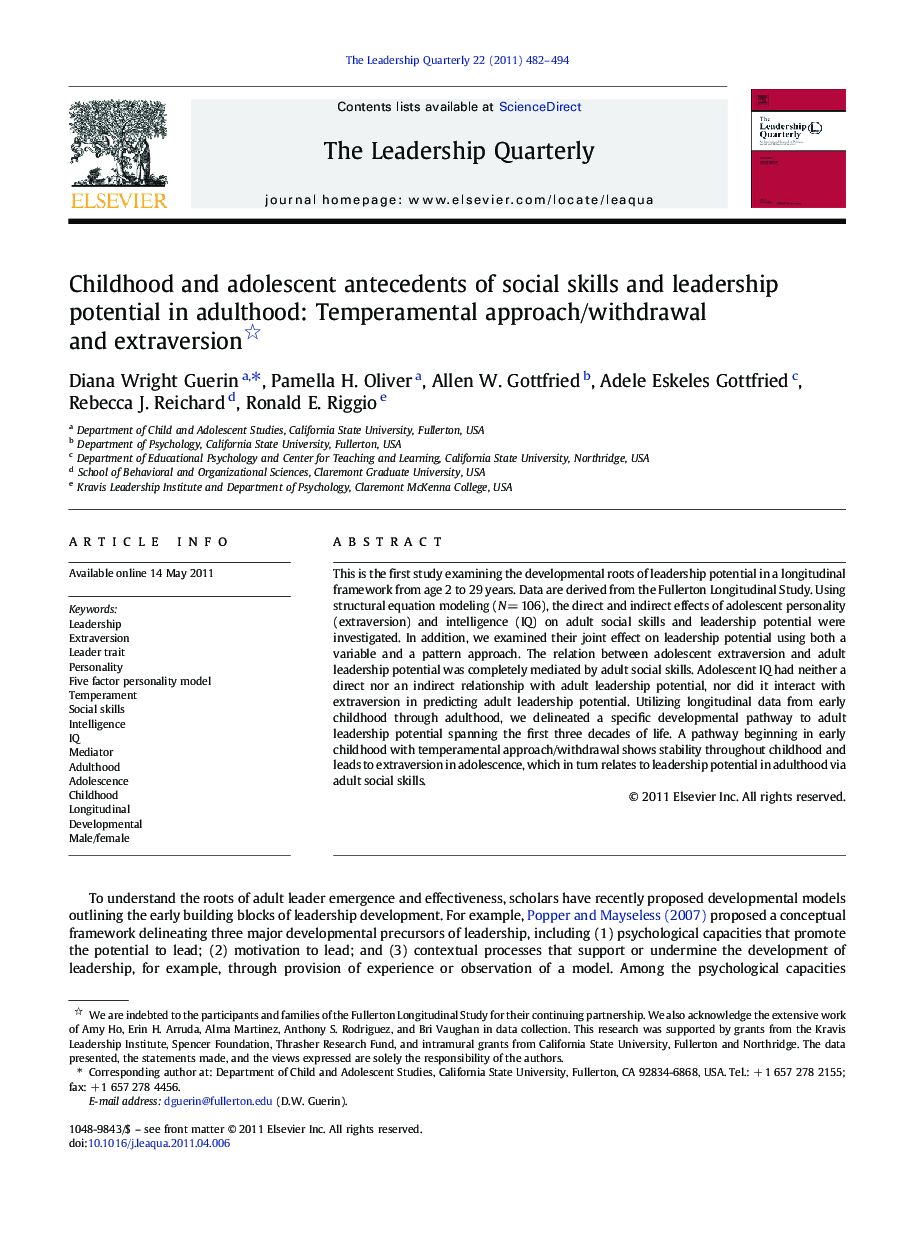| Article ID | Journal | Published Year | Pages | File Type |
|---|---|---|---|---|
| 887994 | The Leadership Quarterly | 2011 | 13 Pages |
This is the first study examining the developmental roots of leadership potential in a longitudinal framework from age 2 to 29 years. Data are derived from the Fullerton Longitudinal Study. Using structural equation modeling (N = 106), the direct and indirect effects of adolescent personality (extraversion) and intelligence (IQ) on adult social skills and leadership potential were investigated. In addition, we examined their joint effect on leadership potential using both a variable and a pattern approach. The relation between adolescent extraversion and adult leadership potential was completely mediated by adult social skills. Adolescent IQ had neither a direct nor an indirect relationship with adult leadership potential, nor did it interact with extraversion in predicting adult leadership potential. Utilizing longitudinal data from early childhood through adulthood, we delineated a specific developmental pathway to adult leadership potential spanning the first three decades of life. A pathway beginning in early childhood with temperamental approach/withdrawal shows stability throughout childhood and leads to extraversion in adolescence, which in turn relates to leadership potential in adulthood via adult social skills.
